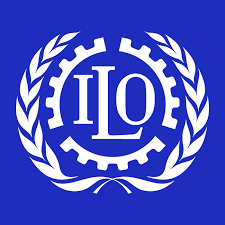
Director-General of the International Labour Organisation (ILO), Gilbert Houngbo, has called on global financial leaders and policymakers to radically rethink macroeconomic strategies and place decent work, labour rights, and inclusive growth at the heart of global economic policy.
Speaking at the IMF-World Bank Spring Meetings in Washington, DC, Houngbo described the current global moment as a “critical juncture” that demands decisive, coordinated action. He urged governments and international institutions to move beyond fragmented policy approaches and embrace employment quality as a key pillar of resilience and prosperity.
“The global economy stands at a critical juncture, and the moment for decisive action is now,” he said.
Houngbo warned that rising youth unemployment, widespread informality, and growing gender inequality threaten global stability and long-term development. He expressed particular concern for informal workers lacking social protection and the looming challenge of integrating 1.2 billion young people into the global workforce in the coming decades.
“Our world is filled with persistent decent work deficits,” he noted.
“The connection between quality employment and prosperity can hardly be more evident or more urgent.”
The ILO chief criticised the tendency of treating employment generation, rights protection, and economic growth as mutually exclusive or competing policy goals. He argued this fragmented thinking has weakened progress across all fronts.
“Too often, policymakers have viewed employment, rights, and growth as separate requiring difficult trade-offs. This approach ultimately undermines all three.”
He advocated for a shift toward macroeconomic strategies where employment outcomes are recognised as core objectives not just by-products of stability-focused policies. He called for monetary and fiscal tools that explicitly aim to improve labour market conditions.
Houngbo also pointed to strategic investments in sectors such as the green economy, education, digital infrastructure, and care services, describing them as both socially essential and economically stabilising.
In addition, he underscored the importance of robust social protection systems, describing them as economic shock absorbers that help maintain consumption, reduce poverty, and ensure income security amid rising labour market volatility.
“Social protection systems are critical stabilisers they maintain consumption during downturns, reduce inequality, and offer income security to vulnerable workers.”
Highlighting the ILO’s Global Coalition for Social Justice, launched in 2023, Houngbo said the multilateral initiative with over 300 global partners is fostering collective policy action in partnership with institutions like the IMF and World Bank. Since 2019, these partnerships have intensified, helping to align financial and employment policies for greater global impact.
“The ILO’s integrated approach, linking jobs, rights, and growth, provides a framework for tackling today’s challenges. A renewed commitment to social justice will help position decent work as the path to global prosperity,” he concluded.





